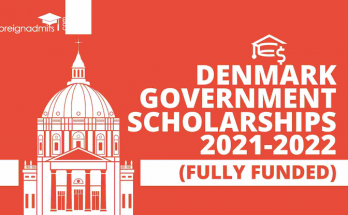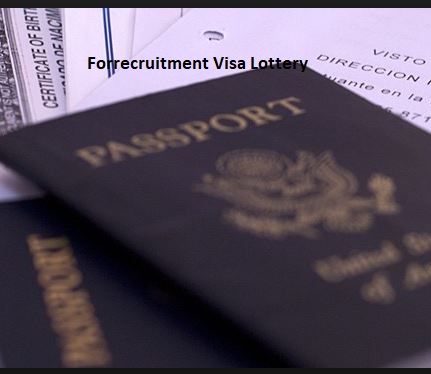In Canada, you’ll find extremely warm and welcoming people who come from varied ethnic groups with different cultures and lifestyles. The multicultural environment in Canada promotes friendliness and peaceful living like no other country that’s why students surf online today in search of Scholarships in Canada. In fact, you will find a lot of Indians studying, working, and living in Canada.
If you’re eager to experience all these and more in the flesh but hesitant due to the financial costs involved, there are a number of scholarships in Canada that will help you take some of that weight off your shoulders.
Partial or fully-funded scholarships will help you with tuition, while there are also many ways to work while you study in Canada, be it on-campus, off-campus, internships, and co-op placements. Depending on the institution and type of visa you have, international students are allowed to work 20 hours a week during a normal school session and 40 hours per week during school breaks
Table of Contents
Reasons to apply for Scholarships in Canada
One of the biggest reasons why Canadian education stands unique is because of its strong focus on research and development. If you’re a research scholar, there can be no country better than Canada. The government of Canada offers great support to research in the disciplines of medicine, telecommunication, agriculture, environmental science, and technology.
Thanks to its special regulations, Canada provides all its international students with an opportunity to work for up to 20 hours every week during their semesters and full-time during the summer and winter breaks. To work on-campus or as an intern in any company, you would not require any additional work permit as your study permit is enough to help you find a part-time job.
If your interest is piqued, here are some scholarships in Canada that you can still apply for this year:
1. China Scholarship Council – University of Saskatchewan Joint Funding Programme
The China Scholarship Council (CSC), in conjunction with the University of Saskatchewan (USask), is offering exceptional Chinese graduate students the opportunity to pursue Ph.D. and post-doctoral studies through the CSC–USask Joint Funding Programme. To be eligible, you must be a citizen of the People’s Republic of China and not have permanent residency in another country. Applicants should not be older than 35-years-old at the time of the application (or born after March 10, 1983).
The CSC application for Full-Degree and Joint/Sandwich Ph.D. Students are open between March 10 to March 31, 2021 (China time) while the CSC application for Visiting Scholar/Post-Doctoral Fellows is April 10 to may 30, 2021 (China time).
Eligibility criteria:
Nationality: Applicant must be a citizen of the People’s Republic of China and not have permanent residency in another country.
Age: Must not be older than 35 years old at the time of the application. (Be born after March 10, 1983).
Academic requirements:
- Be an undergraduate or master’s degree student or graduate from and living in mainland China or
- Hold a master’s degree, be a graduate student or a recent graduate (within one year) from a foreign university (can include USask). *
- Have an offer of admission letter from USask formatted according to the requirements of the CSC application.
- The above academic requirements are valid for full-degree Ph.D. students. For joint/sandwich students, and current Ph.D. student in China is eligible. For the full list of eligibility criteria, please refer directly to the CSC website.
- Meet the admission requirements of your graduate program of study.
English language proficiency:
At the time of application, provide proof of English language proficiency in one of the following ways:
- Obtained an undergraduate or higher degree instructed entirely in English.
- In the past ten years, have studied in Canada for a minimum of one academic year (8-12 months).
- Participated in the National Foreign Language Proficiency Test (WSK) and meet the eligibility criteria.
- Participated in the IELTS (Academic) or TOEFL proficiency tests, scoring the following minimums: IELTS 6.5, TOEFL (IBT) 95.
- For Ministry of Education employees, participated in relevant language training and obtained a certificate of completion (English advanced class) through the Department of Study Abroad Training.
All applicants must meet the minimum USask admission requirement for English Proficiency which may be different from CSC requirements.
How to apply
The CSC application for Full-Degree and Joint/Sandwich Ph.D. Students is open between March 10 – 31, 2021 (China time).
The CSC application for Visiting Scholar/Post-Doctoral Fellows is April 10 – 30, 2021 (China time). Please visit the CSC website for details.
To apply, identify your category and admission procedure below.
Chinese Full-Degree Ph.D. Students
Step 1: Find a program and follow the steps to apply to USask for admission (on the application form, you must indicate that you are intending to apply for a China Scholarship Council award).
Step 2: Apply to the CSC.
Chinese Joint/Sandwich Ph.D. Students
Joint/Sandwich students may conduct research, as well as register in graduate courses.
Step 1: Check the information provided by the USask under how to apply for Joint Student/ Sandwich program.
Step 2: Apply to the CSC.
Visiting Research Students (CSC Visiting Scholars)
Visiting Research Students may conduct research with a supervisor only, and are not eligible to register in courses.
Step 1: Follow the application steps to USask as a Visiting Research Ph.D. student (VRS).
Step 2: Apply to the CSC.
Post-Doctoral Fellows
Post-Doctoral Fellows may seek opportunities by contacting prospective supervisors.
Step 1: Visit the Post-Doctoral Fellows website for more information regarding choosing a supervisor and how to apply.
Step 2: Apply to the CSC.
Funding
As prescribed by the China Scholarship Council – University of Saskatchewan Joint Funding Program, applicants shall receive funding support according to their category.
Chinese Full-Degree Ph.D. Students
Successful candidates will be provided with a living allowance as determined by the CSC (that includes health insurance) for up to 48 months, a return international airfare, and visa application fees.
Candidates will also be provided with a funding package from USask which is equivalent to the cost of full tuition. At USask, the faculty supervisor or academic unit provides the funding for these students.
Chinese Joint/Sandwich Ph.D. Students
Successful candidates will be provided with a living allowance as determined by the China Scholarship Council (that includes health insurance) for up to 24 months, a return international airfare, and visa application fees.
USask will also provide the resources and equipment (office, laboratory, computer, network & library) needed to perform their research.
Visiting Research Students (Visiting Scholars) and Post-Doctoral Fellows
CSC will consider successful selected Post-Doctoral Fellows for up to 24 months and scholars for up to 12 months for a living allowance as determined by the Chinese government, a return international airfare, and visa application fees.
USask will also provide the resources and equipment (office, laboratory, computer, network, and library) needed to perform their research. This will support research collaborations between USask, Chinese Scholars, and Post-Doctoral Fellows.
2. University of Saskatchewan Graduate Scholarship
If you’re not a Chinese citizen but want to pursue your postgraduate studies at the University of Saskatchewan, you can opt for this scholarship. Their Ph.D. scholarships are valued at 20,000 Canadian dollars (tenable for up to 36 months) each; alternatively, their Master’s Thesis is valued at CA$16,000 (tenable for up to 24 months). The deadline to apply is Feb. 22, 2021.
Eligibility:
The College of Graduate & Postdoctoral Studies (CGPS) offers University Graduate Scholarships to students in the following departments/units:
- Anthropology
- Art & Art History
- Curriculum Studies
- Education – cross-departmental PhD program
- Indigenous Studies
- Languages, Literatures, & Cultural Studies
- Large Animal Clinical Sciences
- Linguistics & Religious Studies
- Marketing
- Music
- Philosophy
- Small Animal Clinical Sciences
- Veterinary Pathology
- Women, Gender & Sexuality Studies
3. Universite Montreal International Student Scholarship Programme
The UdeM exemption scholarship program aims to support international candidates in their university studies. They offer graduate scholarships for students. The scholarship is valued at CA$9,420 per year (three sessions, equivalent to 45 credits) or CA$3,140 per session (equivalent to 15 credits). “This amount is applied to tuition fees of $27,300 per year (45 credits),” it said. The deadline for the winter intake for a master’s, specialized graduate diploma (DESS), microprogram, or Ph.D. is Sept. 1, 2021.
How can I receive these Scholarships in Canada?
Apply for admission: To get your application and admissions process off to a good start, explore “Compass”, an interactive checklist that guides you through the required steps. Before completing the application form, make sure you respect the application deadlines and check the admissions requirements for the study programs of your interest.
Follow-up on your file and receive an offer of admission: A few days after submitting your admissions application, you will receive your access codes for the “Student Centre.” This is the platform where you can monitor your application and receive your offer of acceptance letter.
Accept the offer of admissions to start the evaluation: You don’t have to apply for a UdeM Exemption Scholarship. New candidates’ files will be evaluated to determine their eligibility and the amount of their exemption scholarship.
Receive the notice of award with the amount: After receiving your admissions offer, the Université de Montréal will promptly inform you, by email, of the amount of the scholarship to which you are entitled. Print and keep this document in a safe place. It will be useful for future reference learn more here.
Canada-ASEAN Scholarships and Educational Exchanges for Development (SEED)- Scholarships in Canada
If you’re keen to engage in a short-term exchange opportunity for study or research in Canadian post-secondary institutions at the college, undergraduate, and graduate levels, this scholarship is for you. Do note that only Canadian institutions can submit applications on behalf of candidates. If you’re interested in this scholarship program, contact your institution to make your interest known and to request information about the application process and selection criteria. The deadline is June 4, 2021.
Eligibility
Candidates must be citizens of an ASEAN member state (Brunei Darussalam, Cambodia, Indonesia, Laos (Lao People’s Democratic Republic (Lao PDR)), Malaysia, Myanmar, The Philippines, Singapore, Thailand, or Vietnam).
- who have obtained Canadian citizenship or who have applied for permanent residency in Canada are not eligible;
- already participating in an exchange scholarship program funded by the Government of Canada are not eligible;
- already enrolled in a degree or diploma program at a Canadian university or college are not eligible;
- must be enrolled full-time at a post-secondary institution in an eligible country and paying any tuition fees regulated by that institution at the time of application and for the full duration of the exchange;
- must take the responsibility for applying for a study or work permit (generally a study permit is required for course work and a work permit is required for research);
- Moreover, Choose a field of study or research that is aligned with, and contributes to, the implementation of the 2030 Agenda for Sustainable Development; and
- must submit a letter of intent (maximum one page) outlining how the chosen field of study or research contributes to the 2030 Agenda for Sustainable Development, and how the candidate will apply the learning to help combat poverty and narrow the development gap in the ASEAN region. The candidate letter of intent must include the following:
Further More on Scholarships in Canada:
-
- A brief description of the chosen field of study or research;
- A brief explanation of how the chosen field of study or research is aligned with the 2030 Agenda for Sustainable Development;
- Identification of which Sustainable Development Goal(s) the chosen field of study or research is aligned with;
- For candidates from Cambodia, Indonesia, Laos, Malaysia, Myanmar, the Philippines, Thailand, and Vietnam: please provide a brief explanation of how you plan to use the learning in Canada to help combat poverty in your home country;
- For candidates from Brunei and Singapore: please provide a brief explanation of how you plan to use the learning in Canada to help combat poverty in one of the other eight ASEAN countries listed under item 4 above.
Conclusion
The above-mentioned scholarships in Canada are all still available with an upfront deadline which means an application for the scholarships is still available. If you find it difficult in making institutional choices feel free to contact your nearby educational board or you can use the comment section for further clarification.


